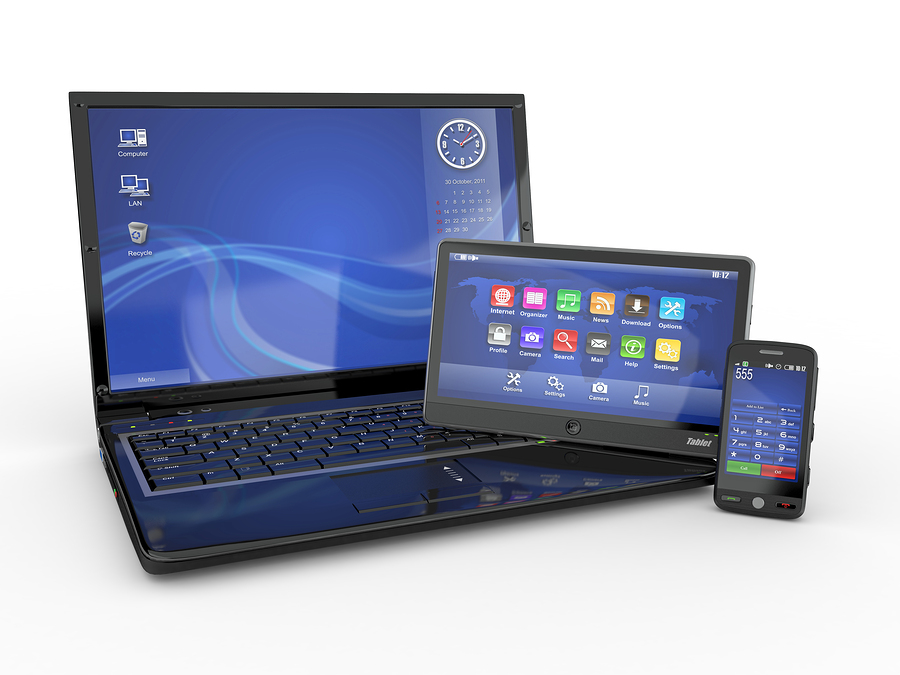- Make It Yourself Lavender Heart-Shaped Bath Bombs!
- 20 Things You Never Knew About “Down There”
- 12 Best Foods For Those Suffering From Arthritis Pain
- 12 Personal Hygiene Mistakes Almost Everyone Makes (Mom Never Told You About #4!)
- 15 Medicinal Plants And Herbs From The Cherokee People
- 12 Mind-Blowing Benefits Of Drinking Coconut Water During Pregnancy
- 12 Outstanding Winter Foods That Won’t Fatten You Up Like A Christmas Turkey
Is Your Smartphone Really Making You Near-Sighted?

Photo credit: bigstock.com
Electronic devices are an integral part of daily life in the modern world. Smart phones, computers and tablets are so ubiquitous, and used so frequently, they have almost become an extension of ourselves. But constant use of electronic devices with screens may have unintended side effects. New research indicates a potential connection between the rise of computer use and a marked increase in myopia.
Myopia, or near-sightedness, is eye condition in which an individual’s vision becomes blurry and unfocused when looking at things at distance. This is caused when the eyeball takes on an oblong, rather than a spherical shape, resulting in distorted vision. Tasks like reading, writing or working on a computer are not a problem for a myopic person, but anything requiring them to focus on objects in the distance (driving, for instance) could be problematic. Near-sightedness may not be debilitating, but it can affect quality of life and ability to function. Myopic individuals usually require correction for their vision by means of glasses, contact lenses, or laser eye surgery.
While myopia has always existed, statistics show a concerning trend regarding the numbers of people with near-sightedness. Over the past past few decades there has been an enormous increase in cases of near-sightedness. In the 1970s, only 25 percent of adults in the United States were near-sighted. Today that number is around 40 percent.
This trend is not confined to the U.S. either. There has been an even greater increase in east Asian nations like South Korea, Singapore, and Japan. Some countries in Asia have levels as high as 80 percent. In the past, Singapore’s military would reject applications for near-sightedness, but now they are forced to accept because they simply would not have enough men to fill their ranks.
Continue to Page 2

Photo credit: bigstock.com
Why is the increase in myopia happening?
Research has indicated that there is a correlation between the increased use of electronic devices with screens and the rise of near-sightedness.
Prior to the rise of the internet, it was common for people to only spend an hour or so a day looking at screens up close, whether it was research in a library or in a computer class. But as internet speeds increased, so did the daily amount of screen time. Fast forward to the present, and the average person spends three or more hours a day looking at an an electronic screen, be it a laptop, smartphone, or tablet.
There are a number of factors suggesting a link between this increased use of screens and computers. First, there is the issue of the physical distance between the screen and the eye.
The human changes shape slightly depending on whether you’re focusing on an object in the foreground or off in the distance. Most people only have their laptop screen about 12 to 16 inches away from their eyes. With smartphones and tablets, the distance is even less. If you’re constantly focusing on something only a few inches away from you, your vision can become altered, and your ability to clearly see things in the distance is reduced.
This raises the question about whether it is specifically screen viewing or simply focusing on any nearby objects that contributes to myopia.
If one was to spend hours and hours focusing on objects only a few inches away, it would make sense that near-sightedness would occur regardless of whether it was a screen or something non-electronic, like a book — perhaps this is where the stereotype of bookworms wearing glasses comes from. But there are factors unique to screen exposure that must be taken into account here.
People tend to blink less often when staring at a screen versus performing other tasks. This causes eye strain and increased dryness. Taken on its own, this doesn’t sound like a big deal. But if this is happening chronically, day in and day out, the cumulative effect can take a toll on one’s vision.
There is also the type of light displayed on a screen. Most electronic screens emit light from the whole visible light spectrum, including blue light. Blue light in particular can cause damage to the retina in a manner similar to UV light. There is also the fact that in nature, humans are only exposed to blue light during daylight hours. With electronic devices that can be used at any time of day or night, people are exposing themselves to blue light at inappropriate times.
Blue light, whether natural or artificial, causes the brain to think it is daytime. So when you lay in bed using your smartphone, you’re essentially tricking your brain into thinking that it is the middle of the day. This has been linked to difficulties falling asleep.
Continue to Page 3

Photo credit: bigstock.com
What can you do?
Luckily, it is relatively easy to make some changes in your electronic device habits that will fix this problem.
- First, use the 20-20-20 method. When working on the computer, every twenty minutes, take a break and focus on an object at least 20 feet away, for at least twenty seconds. This will snap your eyes out of “near-focus” mode and give them a rest.
- Install f.lux on your computer and phone. This amazing program filters out part of the blue light your screen emits. The level it filters out changes depending on the time of day. As a result, your screen’s light will reflect the natural appearance of sunlight, getting dimmer as the day progresses. This will reduce eye strain and prevent the blue lights from screwing up your brain’s ability to fall asleep at night.
- This one might be the most difficult method, but sometimes you have to just put the device down. Be mindful of how much time you are spending on your smartphone or computer. Are you doing something important, or just killing time? If it’s the latter, trying doing something outdoors instead. Go for a walk, go the beach. There’s a whole world outside of the screen!
READ ALSO: Is Your Computer or Cell Phone Slowly Killing You?
Remember, nothing you need to do on your computer is worth sacrificing your vision. Make a few changes in your lifestyle, and enjoy healthier, sharper eyesight for life.
References:
































